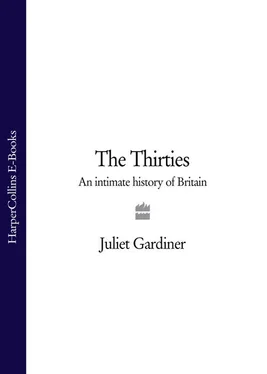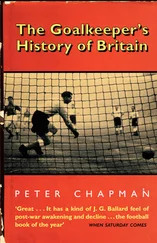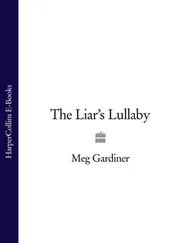‘Well — we have what is called a “National Government” — Conservatives, Liberals, and Mr Ramsay MacDonald and a few friends,’ wrote the Conservative MP for Barnard Castle, County Durham, Cuthbert Headlam, sceptically. ‘I cannot see how such a combination … is going to do any good … except on paper this is not a coalition. It is a collection of people collected together to save the situation … their task, if carried out properly will make them very unpopular — they cannot go on for long without quarrelling among themselves for their policies are widely divergent.’
MacDonald, Snowden and Thomas were expelled from the Labour Party, and Arthur Henderson assumed the leadership. In September Snowden’s budget (attacked by Keynes as being ‘replete with folly and injustice’) raised taxes, proposed a range of cuts in public workers’ salaries and cut 10 per cent (though not the 20 per cent recommended by the May Committee) off unemployment pay. On 21 September, with a renewed run on the pound (partly as a result of the Invergordon Mutiny, when naval ratings refused to muster when faced with disproportionate pay cuts), the Bank of England abandoned the Gold Standard, a situation that the National Government had been brought into being to avoid. Within a year this allowed interest rates to fall to as low as 2 per cent and brought about the ‘cheap money’ that would help build Britain’s industrial recovery.
The election that was called for October 1931 was essentially a fight between Labour and the rest: and the rest won. In 1929, 287 Labour MPs had been elected; in 1931 this was cut to fifty-two, and that included Scottish ILP Members (who eventually disaffiliated from the rest of the ILP under their leader James Maxton in July 1932, believing they could answer the need the ILP perceived among the working classes for a more radical socialist party). Labour was all but annihilated everywhere except in coalmining areas. Arthur Henderson lost his seat, as did Hugh Dalton and Herbert Morrison. Only one former Labour Cabinet Minister, George Lansbury, was returned, though two Junior Ministers, the men of tomorrow, Clement Attlee and Stafford Cripps, just managed to hang on. The so-called National Government, which was composed mainly of Conservatives and members of a terminally divided Liberal Party, swept the board with 554 seats.
Thomas Jones felt like ‘the Scotch minister who had prayed earnestly for rain, and then had the whole contents of a drainpipe emptied over him’ when he heard of the rout. ‘The election results are astounding,’ wrote Samuel Rich, a teacher at the Jews’ Free School in London, who considered that ‘teachers are the worst hit in the land, except the poor unemployed’ when he received his first reduced monthly salary of £29.7s instead of the former £32.6s on 23 October 1931. ‘There will be no opposition … “Socialism in our Time” is off,’ he wrote in his diary, underlining ‘off’ heavily, twice.
Indeed, it seemed to many that Labour would never again come to power democratically. Hugh Dalton talked darkly about bringing the Durham Light Infantry to London to replace the Brigade of Guards. When Hugh Gaitskell was adopted as Labour candidate for Chatham for the 1935 general election he was rueful: ‘The Labour Party … tried to get better conditions out of capitalism … leaving the economic power in the hands of the same people as before … The only way in which Socialism could be got was shortly and fairly sharply … [T]hey should get the power, proceed with measures of Socialisation, and smash the economic power of the upper class.’ Cripps, for his part, would hint at ‘adopting some exceptional means such as the prolongation of the life of Parliament for a further term without an election’, and ‘overcoming opposition from Buckingham Palace’, though when taxed that this sounded a bit like treason, he affected surprise that ‘anybody should have thought I was referring to the Crown’.
‘The one thing that is not inevitable now is gradualness,’ Cripps insisted. The Webbs agreed, and in September 1932 the Fabian-inspired SSIP was merged with the minority wing of the ILP that had stayed in the Labour Party to form what became the Socialist League, another intellectual pressure group, this time with a clear, if broad, Marxist agenda, with Harold Laski and H.N. Brailsford among its members, and soon Sir Stafford Cripps as its chairman. The Socialist League became the main organisation of the left until it too was dissolved by the leadership in 1937, while the NFRB merged with a revived Fabian Society a year later.
MacDonald — and his ‘ism’ — were, as his daughter had predicted, faced with antagonism from most (but not all) of the Labour Party, though this had as much to do with his disdainful treatment of his parliamentary colleagues and TU supporters as with his initial ‘betrayal’. Samuel Rich was amused to receive a ‘jeu d’esprit’ about MacDonald that a friend wrote and slipped in a Christmas card:
If Ramsay MacDonald, you still have brains that work
Not solely to commands from high finance …
How it must chill your socialistic bones
Seated upon your unsubstantial throne —
A transient triumph — then the long alone —
Sans friends, sans party, salary or loans …
History’s verdict has been kinder, more prepared to absolve MacDonald from conspiracy and self-aggrandisement, accepting to some extent his reading of the national interest, seeing little culpable substance in his faiblesse for eating cucumber sandwiches with and getting sentimental about aristocratic ladies, and finding the explanation for his actions in confusion, being out of touch, having an imperfect understanding (but who did not?) of economic forces, and few mechanisms at his disposal to influence those forces, and thus of clinging to outworn verities, of believing in socialism but having no plan for achieving it. In sum, being blinded by the blizzard that swept the world in which, to strain a metaphor, the windscreen wipers seemed to have frozen.
Could things have been different? Would a ‘Keynesian Revolution’, an idea which gained favour in the 1960s and ’70s, have saved the day? Such an ambitious ‘New Deal’ public works programme might at least have provided Britain with a creditable infrastructure of roads and bridges. But would it have solved the unemployment problem? Possibly back in 1929 when unemployment was around a million it could have been cut by 600,000, as Lloyd George pledged, the most astute historian of that proposed ‘revolution’ judges, but by 1931 the Labour government’s own two-year public works schemes had become operational, and unemployment remained obdurate in the face of the world slump. The theoretical basis of the ‘multiplier effect’ (whereby creating primary employment opportunities generates secondary or subsequent ones as a result of increased spending power) of such schemes on employment was imperfectly understood until the mid-1930s. At the time public works projects were advocated as being cheaper and more controllable than the dole, rather than because of ‘the beneficial repercussions that will result from the expenditure of the newly-employed men’s wages’ (though evidence to the Macmillan Committee had suggested something similar, as Bevin and McKenna’s enthusiasm showed). And, of course, those in the Labour Party who still imagined they were tramping along the long road to socialism noted that Keynes’ solutions were intended to make capitalism work more efficiently and humanely, not bring about its demise.
The month before Labour went down to an electoral ignominy from which it would not recover until 1945, the number of those out of work was the highest ever: 2,811,615.
SEVEN (Too Much) Time to Spare
Читать дальше












